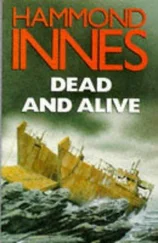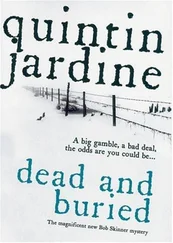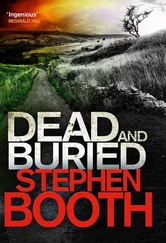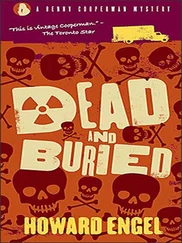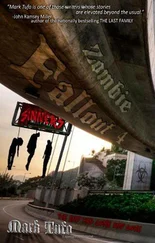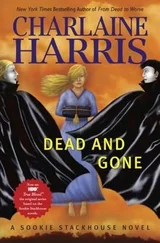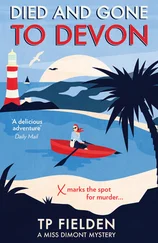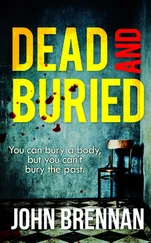Andrew Vachss - Dead and Gone
Здесь есть возможность читать онлайн «Andrew Vachss - Dead and Gone» весь текст электронной книги совершенно бесплатно (целиком полную версию без сокращений). В некоторых случаях можно слушать аудио, скачать через торрент в формате fb2 и присутствует краткое содержание. Жанр: Старинная литература, на английском языке. Описание произведения, (предисловие) а так же отзывы посетителей доступны на портале библиотеки ЛибКат.
- Название:Dead and Gone
- Автор:
- Жанр:
- Год:неизвестен
- ISBN:нет данных
- Рейтинг книги:5 / 5. Голосов: 1
-
Избранное:Добавить в избранное
- Отзывы:
-
Ваша оценка:
- 100
- 1
- 2
- 3
- 4
- 5
Dead and Gone: краткое содержание, описание и аннотация
Предлагаем к чтению аннотацию, описание, краткое содержание или предисловие (зависит от того, что написал сам автор книги «Dead and Gone»). Если вы не нашли необходимую информацию о книге — напишите в комментариях, мы постараемся отыскать её.
Dead and Gone — читать онлайн бесплатно полную книгу (весь текст) целиком
Ниже представлен текст книги, разбитый по страницам. Система сохранения места последней прочитанной страницы, позволяет с удобством читать онлайн бесплатно книгу «Dead and Gone», без необходимости каждый раз заново искать на чём Вы остановились. Поставьте закладку, и сможете в любой момент перейти на страницу, на которой закончили чтение.
Интервал:
Закладка:
I didn’t feel perfect, but it was time to go.
Clancy was in the lobby when I came down, chatting with the girl at the front desk. He took out a small notebook, wrote something down. I didn’t think it was a license number.
He strolled over to where I was standing, said, “You got a coat with you?”
“Just what you saw yesterday. It wouldn’t go with this.”
“Traveling light, huh?”
“Yep,” I said. Thinking of the twin to the Python that had totaled Dmitri, now taped inside the toilet tank in its waterproof wrap.
“Well, it’s no big deal. We’ll be indoors.”
I followed him outside, where he handed something to a guy in a hotel uniform. Whatever he handed him was wrapped in green.
The Lexus SUV that rolled up to where we were standing was green, too. At least, I’d call it green—Lexus probably calls it something like Rainforest Morning Mist Emerald. Clancy walked around to the driver’s side. I climbed into the front bucket seat.
“You’ve got a valid driver’s license?” he asked, as he pulled onto an eight-lane divided highway and hit the gas.
“New York,” I told him. Thinking how the photo wouldn’t exactly be a perfect match now.
“Good enough. This is the car you’re borrowing. I have to teach a class today. Turns out it’s right in Winnetka. You come along, get a chance to scope out the area, right?”
“Sure. What’s the tariff on the car?”
“There isn’t any. It’s a police impound, seized in a drug bust. It’s already been vacuumed and tagged. The plan is to use it as an undercover vehicle in a few weeks. The plates will trace right back to my department, so, if you get in a jackpot, tell the arresting officer to call up and ask for me. They’ll make you for a CI.”
“Okay. Thanks.”
“Well, you can’t cruise around the neighborhood you want in a Chevy. This one, nobody’ll notice.”
I made a sound to indicate I understood. He drove in silence for a bit, then said: “We’re on Lake Shore Drive. That’s Lake Michigan out there. When it’s on your right, you’re heading north.”
“I thought you were a Chicago cop,” I said.
“I am.”
“But you’re teaching a class in Winnetka?”
“Believe it or not, Winnetka’s still part of Cook County. We wouldn’t patrol there, of course, but it’s inside our jurisdiction for the classes.”
“What kind of classes?”
“It’s called Licensed for Life,” he said, a deep, rich vein of pride in his voice. “The idea is to give kids interactive information about drunk driving, try to save a few lives.”
“Does it work?”
“Well, I can tell you this, we taught thirteen hundred classes last year, all by request. And from the feedback we get from the kids, we believe they’re really taking it in. There’s no way to give you statistics, not yet. The program is too new. But there’s no question that tons of kids have contacted us after the classes, telling us about situations where they took action to avoid becoming a statistic. We don’t give grades, we’re not part of the faculty, so there’s no point in brown-nosing us. And, besides, all these years in the business, I can tell when somebody’s hosing me. They’re not.”
The highway narrowed a lane or two. Still heading north, near as I could tell, but I couldn’t see the lake anymore to orient myself.
“We’re on Sheridan now,” Clancy said. “Ahead of schedule.”
I restrained myself from saying that, the way he drove, we’d be ahead of any damn schedule.
“First class isn’t till eight,” he said, glancing at his watch. “I know a place where we can get some coffee.”
“Who pays for the classes?” I asked him, sipping my hot chocolate.
“That’s a good question,” he said, chuckling ruefully. “We live on small grants. Sometimes they come in, sometimes they don’t. It takes a long time to train an officer to give the classes. They get paid for every one they teach, but it doesn’t even cover their travel expenses—sometimes you have to drive a three-hour round trip to teach a one-hour class. Everyone who’s observed the program, everybody who’s checked it out, they all love it. If we had a way to turn promises into dollars, we’d have the endowment we need. But, for now, we just scramble and hope.”
“How come the insurance companies don’t fund you? It sounds like a great investment for them. One drunk driver alone can cost them millions.”
“We get a little from them. Not enough. Not near enough. We can’t take tax money to do it—no way to get that past the city council. What we need is a commitment,” he said, his tone saying he had already made one himself. “Some foundation to promise they’re going to give us support for maybe ten years. Long enough for them to do their double-blind studies, prove on paper what we already know from actually doing it.”
“You fancy your chances?”
“I’m Irish.” He grinned.
The guard at the school entrance smiled and waved us in … once he made sure I was with Clancy. The teacher greeted us outside the classroom. He was a middle-aged, middle-sized man who looked tired. “Detective Clancy,” he said, “thanks for coming.”
“My pleasure,” Clancy replied. “Let me introduce Mr. Askew. He’s going to be working with us for a few days.”
“Are you a police officer, too?” the teacher asked.
“I’m a filmmaker,” I said quickly, before Clancy could respond. “We’re interested in the possibilities of making a docudrama about Licensed for Life.”
“Well, that’s a wonderful idea!” the teacher said, enthusiastically. “I’ve heard nothing but good things about it.”
“I’m sure,” I said, my tone implying that I’d need to make that decision for myself.
“You think I’m standing up here as a joke?” Clancy barked at the class, reacting to some giggling over in one corner. “You think all cops care about is taking bribes and eating donuts? You need to pay attention to this. Close attention, understand? This is serious business.”
He reached in his breast pocket, took out a large white napkin that said DUNKIN’ DONUTS in big red and orange letters. He began to clean his glasses with it as he glared at the students. The first student to spot it cracked up. In a minute, the whole class was laughing.
Somehow, Clancy took them from there through a series of anecdotes about drunk drivers that started out funny and ended ugly. By the time he got to a story about a “two-car, five-body” crash he was called out to investigate … and found his fifteen-year-old daughter in the back of a squad car, not badly injured herself, but assaulted by the image of her best friend’s face splattered against the windshield … they were rapt, totally focused.
He backed off then, playing them expertly, like a professional angler giving a fish some line. He asked them questions they should have known the answers to—the penalties for driving under the influence, for instance—then provided the answers when they dropped the ball.
The finale was a pair of goggles he called “Fatal Vision.” He told the class the glasses would show them what the world looked like through a drunk’s eyes. One kid volunteered to try them out. Clancy walked him through the whole routine—fingertips to nose, walking a straight line—and the kid flopped like a fish on a pier. Then he asked the kid some simple problems—counting backwards, naming the last four presidents—and you could see the kid struggling before he came up with the responses. “Easier with your eyes closed , right?” Clancy asked him.
“Right!” the kid agreed.
“Some drunks try to drive that way,” he said, harshly, offering the kid a high-five. The kid missed by three feet and would have fallen on his face if Clancy hadn’t caught him. The class roared.
Читать дальшеИнтервал:
Закладка:
Похожие книги на «Dead and Gone»
Представляем Вашему вниманию похожие книги на «Dead and Gone» списком для выбора. Мы отобрали схожую по названию и смыслу литературу в надежде предоставить читателям больше вариантов отыскать новые, интересные, ещё непрочитанные произведения.
Обсуждение, отзывы о книге «Dead and Gone» и просто собственные мнения читателей. Оставьте ваши комментарии, напишите, что Вы думаете о произведении, его смысле или главных героях. Укажите что конкретно понравилось, а что нет, и почему Вы так считаете.

